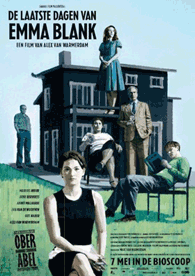
The comedy comes from watching how badly people react when they are forced into creatively, uniquely bad situations. We’re practically assured of surreal scenes, dark humour, and the displays of passive-aggression that would rival peak hour train rides in Singapore, Shanghai, or New York. We have to thank director-writer Alex van Warmerman for creating a family that is unhappy in their unique way, as well as making their private hell disturbingly identifiable to his audience.
Watching The Last Days of Emma Blank, I am reminded of a Q&A session for The Blue Mansion where director Glen Goei pointed that his film could still be taken for a simple story about a complicated family even if one didn’t understand it could be a biting political roman a clef about an Asian strongman. But really, Mr Goei was being facetious – who would think that Raise the Red Lantern, for example, can be appreciated just as a story about a troubled family?
Why do we tend to see political allegory in family epics? Why do people make jokes about capitalism using a family as an illustration? Simple: paternalism is the oldest political philosophy, making it as old as dirt. You know, the state is like the family, the king is the father of the people... Of course, that also makes structural functionalism older than dirt.
The Last Days of Emma Blank is an impish black comedy about people behaving badly that possibly says more about the human condition than it lets on. The best part is, you’ll probably be arguing about what exactly the film allegorises hours after it ends.












 Printable Version
Printable Version










Reader's Comments
Be the first to leave a comment on this page!
Please log in to use this feature.